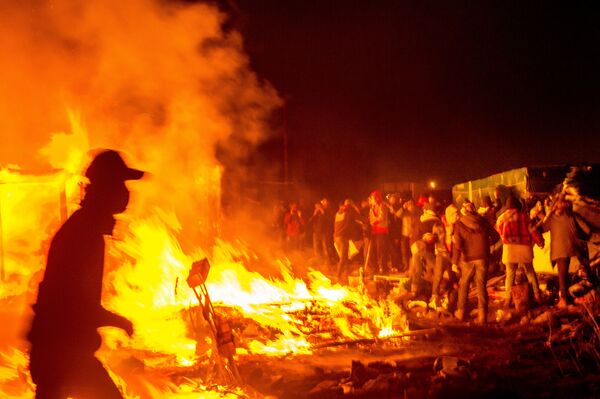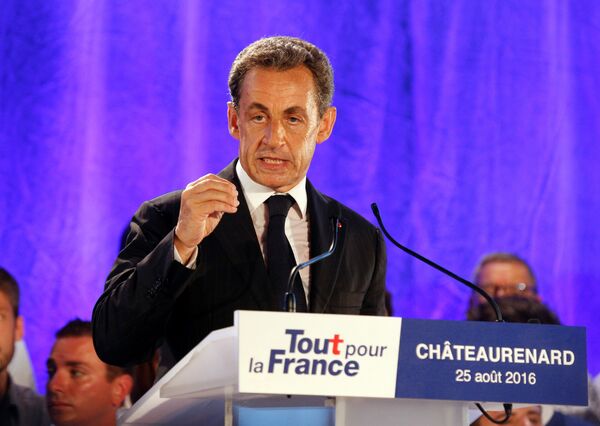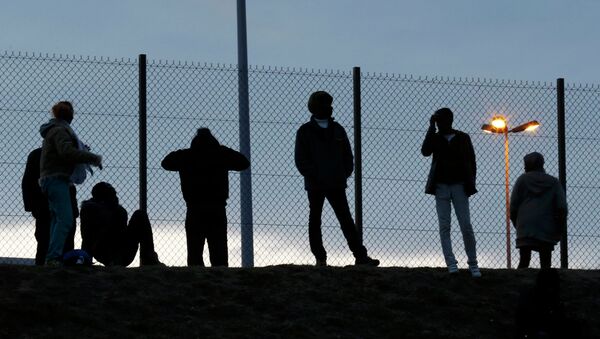In a meeting with her French counterpart Bernard Cazeneuve on Tuesday (August 30), British Home Secretary Amber Rudd was confronted with increasing pressure over the current border arrangement between the UK and France.
Avec Amber Rudd, Ministre de l'Intérieur du Royaume-Uni.Retrouvez notre déclaration commune: https://t.co/kiSrg1xYIy pic.twitter.com/9ClqneGCfU
— Bernard Cazeneuve (@BCazeneuve) August 30, 2016
At stake is the Le Touquet deal: a controversial bilateral arrangement signed in 2003, which allows UK and French border officials to conduct border checks in France, rather than in the UK. The result is that the backlog of rejected immigrants build up on French soil, rather than within England.
It's led to the creation, and expansion, of what has been named the Calais "Jungle" — a sprawling temporary settlement of 9,000 immigrants and refugees, suffering from unsanitary conditions and violent crime.
Italy "rescues" them.
— UK Rants (@uk_rants) 29 August 2016
They travel to #Calais unhindered & unregistered.
Then Sarkozy says they are UK's problem? https://t.co/VZLHUpWsjh
It's a situation that is becoming increasingly intolerable for the residents of the French port city.
Two key votes have intensified this row.
Brexit and Borders
The Brexit vote, when on June 23, the UK voted to leave the EU in a decision that sent shock waves around the continent. Less than 12 hours after the result, the mayor of Calais urged that the Le Touquet deal be scrapped.
Natacha Bouchart said that Britain must "take the consequences" of its vote. She added that in separating from the EU, Britain must itself take care of the issue of hopeful refugees aspiring to settle in Britain — on its side of the Channel.
"The British people have chosen to take back their freedom, they must take back their borders," she said.
The British Home Office has dismissed such demands as "a non-starter".

However, the next vote, which will undoubtedly have a huge impact on the border row is still to come.
In April and May next year, the French will elect their next President.
Already, candidates vying for their parties nomination are in campaign mode. The former French president, Nicolas Sarkozy, has been particularity aggressive in his rhetoric.

Speaking to frustrated and resentful northern French voters, he promised to push for the migrants to be re-settled in England.
"I'm asking for the opening of a center in England to process asylum requests for all those who are in Calais, so that the English do the work that concerns them," Mr Sarkozy said.
"The 'Jungle' should not be in Calais… Those who are here in Calais and who want to cross to England should be processed in England by the English," he added.
In Home Secretary Amber Rudd's first official engagement overseas, she has sought to reassure the British public that the French threats will not be enacted.
A Home Office source said:
"This is a complete non-starter. The Home Secretary is crystal clear that people in need of protection should seek asylum in the first safe country they enter. That's the long-held norm, and we are going to stick to it."
Current rules, known as the Dublin Regulation, mandate that refugees must register in the first European country they reach. However, as this year's migrant crisis has starkly revealed, this often does not happen. Many migrants and refugees continue until they reach a particular destination.

The Brexit vote, which reignited the Le Touquet controversy earlier this year, was widely considered to have been won on the basis of an outpouring of anti-immigration rhetoric within the UK.
The Vote Leave campaign widely touted the slogan "Vote Leave, Take Back Control!" It's perhaps unsurprising that French politicians have seized the initiative to tell the UK, that they too want to take back control over their own border.


